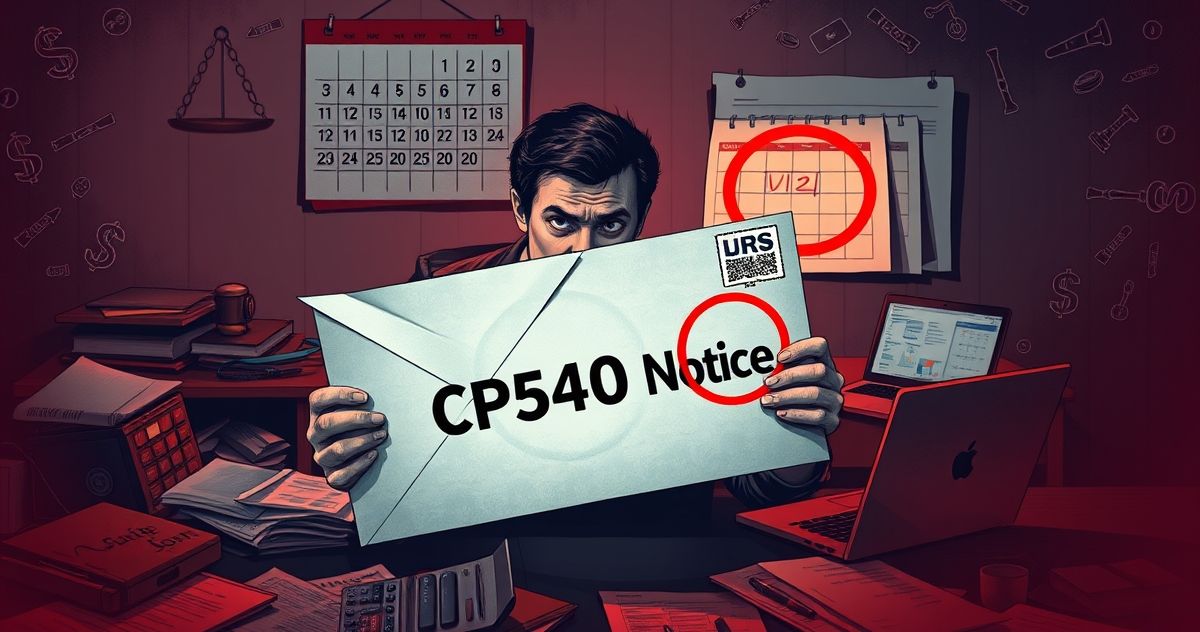Understanding the CP504O Notice
The CP504O Notice is an official document issued by the Internal Revenue Service (IRS) to inform taxpayers of the government’s intent to levy their assets due to unpaid tax obligations. This notice serves as a critical alert that a taxpayer’s account has become severely delinquent, and immediate action is necessary to avoid further legal and financial repercussions.
What is the CP504O Notice and Its Primary Purpose?
The CP504O Notice, also known as the “Final Notice of Intent to Levy,” is primarily used by the IRS as a notification that they will soon initiate collection activities unless the taxpayer pays the specified overdue amount. This is one of the IRS’s more serious notices, signaling that informal resolution avenues have been exhausted. Its issuance often comes after previous notices, like the CP14 or CP501, went unanswered, demonstrating that the taxpayer should view this notice as a severe indicator of potential asset seizure.
Key Features or Components of the CP504O Notice
- Tax Amount Due: The notice details the total amount owed, including penalties and interest accrued up to the date of the notice.
- Due Date for Payment: The CP504O will specify a deadline by which payment must be received to avoid levy action.
- Rights to Appeal: Taxpayers are informed about their right to a Collection Due Process (CDP) hearing, providing them an opportunity to contest the notice before assets are levied.
- Potential Consequences: The document will enumerate the next steps that the IRS may take, such as levying bank accounts or garnishing wages if the debt remains unpaid.
- Contact Information: The IRS provides contact details, allowing taxpayers to communicate directly for any queries or to discuss payment options.
Relevant Filing or Compliance Requirements
Upon receipt of a CP504O Notice, taxpayers should verify the following compliance steps to mitigate the situation:
- Immediate Payment: Paying the total amount due by the assigned deadline is the straightforward way to resolve the impending levy threat.
- Setting Up Installment Agreements: If immediate payment in full is not feasible, taxpayers can contact the IRS to discuss installment agreements that allow settlements over time.
- Offer in Compromise: In cases where paying the full amount would cause financial hardship, taxpayers can explore an Offer in Compromise to settle their tax debts for less than the full amount owed.
- Appealing the Notice: It is crucial for taxpayers to file for a Collection Due Process hearing within 30 days of receiving the notice if they believe the levy is unwarranted.
Penalties or Consequences for Non-compliance
Ignoring the CP504O Notice can lead to dire consequences, as follows:
- Asset Levy: The most immediate action is the IRS’s ability to levy bank accounts, wages, or other financial assets.
- Credit Impact: Unresolved tax issues and levies can significantly damage a taxpayer’s credit score by appearing on their credit report.
- Increased Interest and Penalties: Interest will continue to accrue on the unpaid amount, and further penalties may be applied, compounding the debt.
- Legal Action: Continued neglect might lead to more aggressive legal actions, such as the placement of a lien on personal property.
Importance or Significance in Tax Resolution
The CP504O Notice serves as a final wake-up call and pathway for taxpayers to address unresolved tax liabilities before severe enforcement actions are executed. By comprehending and reacting to this notice, taxpayers can prevent considerable financial and legal complications. The notice often prompts individuals to consider consulting with tax professionals or legal advisors to explore viable solutions tailored to their financial circumstances.
Moreover, resolving a CP504O Notice effectively reflects a taxpayer’s commitment to compliance, which might be beneficial for future tax dealings or applications for financial products. For many, addressing this notice can alleviate the stress associated with IRS debts, thus fostering a healthier financial outlook.
In conclusion, while the CP504O Notice conveys potentially alarming news regarding tax delinquency and forthcoming government actions, it is primarily structured to compel immediate taxpayer attention and response, safeguarding against more severe penalties or fiscal ensnarements. Timely action, informed by an understanding of the notice’s details, can prevent detrimental financial outcomes and guide taxpayers back to a path of compliance and economic stability.

